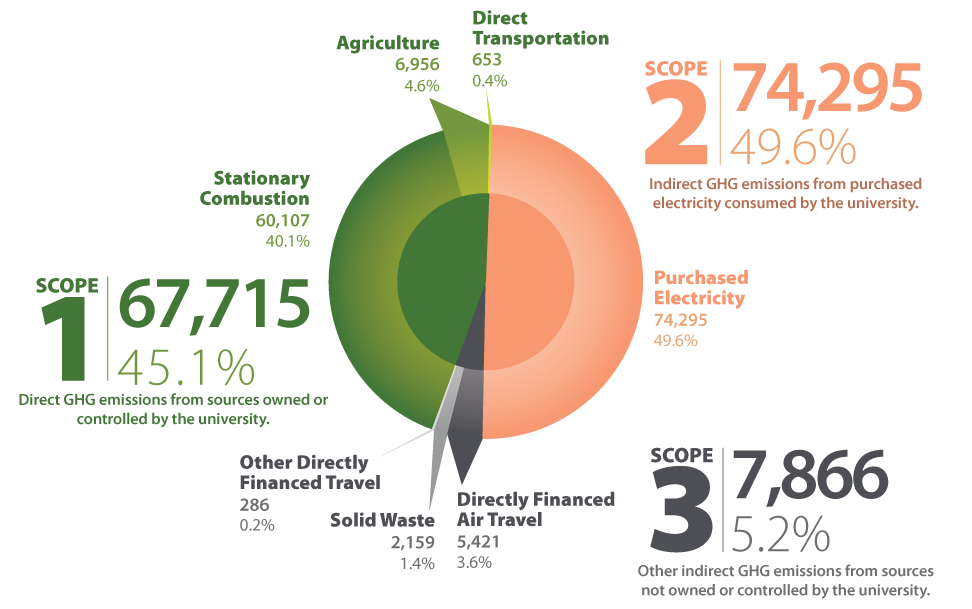University of Saskatchewan Sustainability Strategy (2021-2030)
The University of Saskatchewan’s Sustainability Strategy (2021-2030) recognizes that sustainability isn’t merely another problem to be tackled or solved, rather, it is a culture that must pervade all decisions within our institution. Brought to life by the UN Sustainable Development Goals, our Strategy is meant to position our community to be unapologetically ambitious and appropriately impatient in our actions towards sustainability.
University of Toronto Climate Charter
USask has joined 19 other Canadian universities in signing the University of Toronto's Investing to Address Climate Change: A Charter for Canadian Universities, a charter pushing universities to include sustainability into the decision-making process for their long-term investment portfolios. The principles and practices of the charter are:
- Adopt a responsible investing framework to guide investment decision-making, in line with recognized standards such as the UN-supported Principles of Responsible Investment (UN-PRI). Such a framework should:
- Incorporate ESG factors into investment management practices
- Encourage active engagement with companies to foster disclosure of ESG(including climate) related risks, and adoption of operational practices that reduce carbon emissions and foster ESG-positive behaviour more broadly
- Regularly measure the carbon intensity of our investment portfolios, and set meaningful targets for their reduction over time
- Evaluate progress towards these objectives on a regular basis, and share the results of such assessments publicly
- Ensure that the performance evaluation of our investment managers takes into account their success in achieving such objectives, alongside the other criteria for assessing their performance
Climate Action Plan

October 1, 2010, upon signing the University and College Presidents’ Climate Change Statement of Action for Canada (UCPCCS), the university joined 27 other Canadian post-secondary schools in committing to showing leadership and taking action on climate change. In keeping with our commitments as a signatory, to date the university has accomplished the following:
- An inventory of our GHG emissions, completed in December 2011 and updated in December 2016
- Setting a target to reduce our emissions to 20% below our 2006/07 emissions by 2020
- The implementation of the Climate Action Plan is underway.
- The development of an Energy and Water Conservation Policy in October 2014
- The university's 2016 Greenhouse Gas Inventory identified a 1.1% decrease in total emissions and a 13.35% decrease in emissions per square meter as compared to 2006. In early 2019, an updated Greenhouse Gas Inventory will determine our progress to date.
Energy and Water Conservation Policy
The university is committed to making certain that our energy and water resources are used as efficiently as possible while providing adequate levels of service and comfort. In keeping with this commitment, a new Energy and Water Conservation Policy was approved by the Board of Governors on October 9, 2014.
Energy Action Plan
Beginning in 2015, the Office of Sustainability launched the Energy Action Plan (EAP) to address energy usage and conservation issues at the University of Saskatchewan. The EAP was developed in partnership with SaskPower and is composed of 3 parts: LED upgrades and retrofits, recommissioning for selected older buildings, and the development of an Energy Management Information System (EMIS) pilot project to assess the potential impact on energy management.
As of 2017, the EAP completed LED retrofits in the following campus spaces:
- University Services Building
- Animal Science Building
- Education and PAC Pools
- Museum of Antiquities
- Education Building
- Thorvaldson Building
- Dental Clinic
- Diefenbaker Canada Centre
- Administration Building
- Williams Building
- John Mitchell Building
- Engineering Building
- Law Building
- Edwards School of Business
- Kirk Hall
- Physics Building
- Murray Building
- Toxicology Building
- VIDO/Intervac
- McLean Hall
- ARts Building
The Education and Geology Buildings have been reviewed by external consultants and based on their recommendations, modifications will be made to the operations and equipment to improve energy efficiency.
